Contraception
Over-the-counter contraception pills offer a convenient way to manage reproductive health and prevent pregnancy. Available in various forms, from pills to condoms, these contraceptives work in several ways to help individuals take charge of their sexual health responsibly. Read More…

-
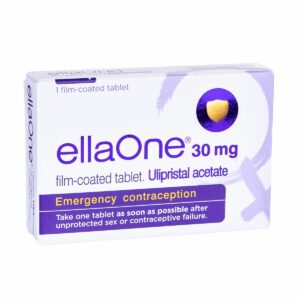
EllaOne 30mg (1 Tablet)
- Morning After Pill Similar To Levonelle
- Active Ingredient: Ulipristal Acetate
- Take Within 120 Hours Of Having Sex
£22.49 Select options -

Hana 75mcg (Desogestrel) Tablets
- Active Ingredient: Desogestrel
- Progestogen-Only Oral Contraceptive Mini-Pill
- Over 99% Effective Pregnancy Control Method
£10.39 – £22.99 Select options -

Durex Pleasure Me Condoms – 6 Pack
- Textured with ribs and dots for added stimulation
- Regular fit
- 100% electronically tested with 5 or more quality tests
£5.79 Add to basket -
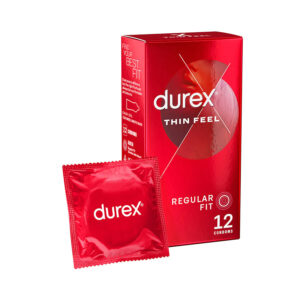
Durex Thin Feel Condoms – 12 Pack
- Helps maximise sensitivity
- Pre-lubricated with silicone lube
- Easy-on shape with nominal width
£9.79 Add to basket -
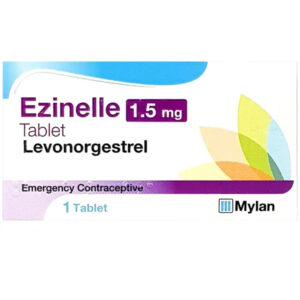
Levonorgestrel 1.5mg Emergency Contraceptive Tablet (P)
- Emergency contraceptive that can be used within 72 hours of unprotected sex
- Contains synthetic hormone called Levonorgestrel
- For oral use only
£9.99 Select options -
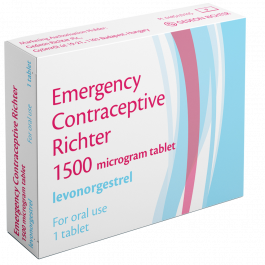
Emergency Contraceptive Richter 1500mcg – 1 Tablet
- Morning After Pill
- Active Ingredient: Levonorgestrel
- Take Within 72 Hours Of Having Sex
£12.99 Select options -
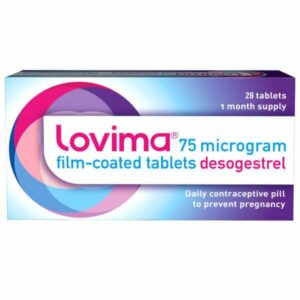
Lovima 75mcg (Desogestrel) Tablets
- Active Ingredient: Desogestrel
- Progestogen-Only Oral Contraceptive Mini-Pill
- Over 99% Effective Pregnancy Control Method
£11.59 – £21.49 Select options -
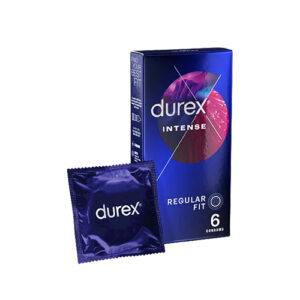
Durex Intense Condoms – 6 Pack
- Offers additional stimulation for her
- Ribbed and dotted for extra sensations
- Mint flavoured
£8.49 Add to basket -
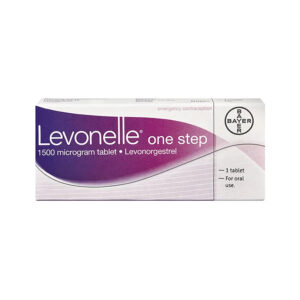
Levonelle One Step 1500mcg Tablet
- Emergency contraceptive that can be used within 72 hours of unprotected sex
- Contains synthetic hormone called Levonorgestrel
- For oral use only
£15.99 Select options -
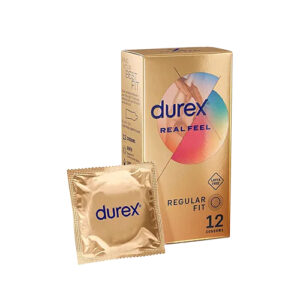
Durex Real Feel Condoms – 12 Pack
- Designed for a natural, skin-on-skin feeling
- Technologically-advanced non-latex material
- Helps maximise his and her pleasure
£14.79 Add to basket -
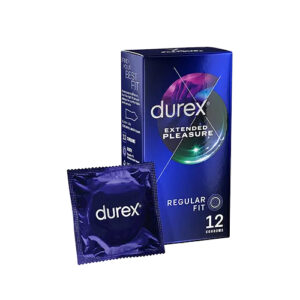
Durex Extended Pleasure Condoms – 12 Pack
- For pleasure that lasts longer
- Uses a special lube that contains benzocaine
- Prolongs excitement and delays climax
£9.79 Add to basket -
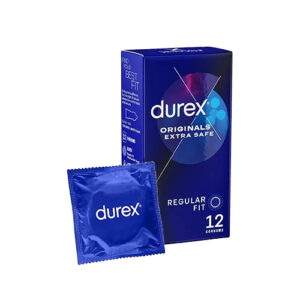
Durex Extra Safe Condoms – 12 Pack
- Extra lubricated for comfort
- Slightly thicker for peace of mind
- Smells better
£9.79 Add to basket -
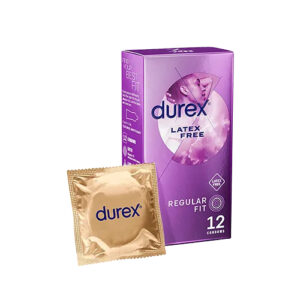
Durex Latex Free Condoms – 12 Pack
- Non-latex, made with synthetic polyisoprene
- Condoms designed for those who are allergic to latex
- Silicone lube for a smoother experience
£14.79 Add to basket -
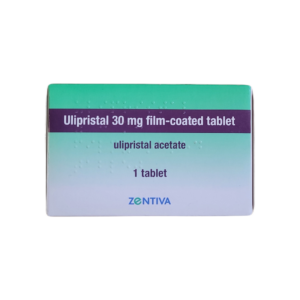
Ulipristal 30mg film-coated tablet – 1 Tablet
- Morning After Pill Similar To Levonelle
- Active Ingredient: Ulipristal Acetate
- Take Within 120 Hours Of Having Sex
£22.49 Select options
-
About Contraception Pills
Contraceptive pills, widely referred to as birth control pills, are a form of hormonal contraception used to prevent pregnancy. They contain synthetic forms of hormones, typically estrogen and progestin, which work together to inhibit ovulation, change the cervical mucus to make it difficult for sperm to pass through, and alter the uterine lining to prevent a fertilized egg from implanting.
There are various types of contraceptive pills, including combined oral contraceptives that contain both estrogen and progestin, and progestin-only pills, often called the mini-pill. The effectiveness of these pills in preventing pregnancy is high when taken as directed, but they do not protect against sexually transmitted infections.
Choosing the right type of contraception is an important decision that should consider personal health, lifestyle, and individual preferences. It’s recommended to discuss with a healthcare provider to find the most suitable option, especially since certain health conditions may influence the choice of contraception.
Contraceptive pills are also available for purposes beyond birth control, such as managing menstrual-related symptoms, treating acne, and more. However, just like any medication, birth control pills come with potential side effects and risks. These can range from minor issues like nausea to more serious conditions, including an increased risk of blood clots, especially in smokers or women over 35.
At My Pharmacy, we offer a selection of over-the-counter contraceptive pills that you can purchase without a prescription. This provides a convenient option for obtaining birth control directly.
-
Symptoms
Contraceptive pills are used to manage various medical conditions by regulating hormones and menstrual cycles. Conditions treated with contraceptive pills include:
• Premenstrual Syndrome (PMS): Symptoms such as mood swings, breast soreness, weight gain, bloating, and acne can be alleviated with continuous use of oral contraceptive pills.
• Polycystic Ovary Syndrome (PCOS): Birth control pills help manage PCOS by regulating menstruation and reducing symptoms like excessive hair growth and acne.
• Endometriosis: Hormonal contraceptives can reduce pain and slow the progression of endometrial tissue growth outside the uterus.
• Irregular Periods: Contraceptive pills are often prescribed to create a regular menstrual cycle, making periods more predictable.
• Acne: Certain types of contraceptive pills can help control acne by reducing the levels of androgens, hormones that can contribute to skin flare-ups.
• Menorrhagia (Heavy Menstrual Bleeding): Birth control pills can help reduce menstrual bleeding and discomfort.Symptoms associated with these conditions often improve with the use of contraceptive pills due to the stabilization of hormonal fluctuations. However, it’s important to consult with a healthcare provider to determine the most appropriate type of contraception based on individual health needs and conditions.
-
Diagnosis
To diagnose conditions that are commonly treated with contraceptive pills, such as Polycystic Ovary Syndrome (PCOS), Endometriosis, and others, medical professionals employ a variety of approaches:
Polycystic Ovary Syndrome (PCOS):
• Medical History: A thorough discussion about menstrual cycles, weight changes, and symptoms like excessive hair growth or acne.
• Physical Exam: Checking for physical signs such as excess hair, acne, and obesity.
• Blood Tests: Hormone level assessments to check for elevated androgens.
• Ultrasound: Used to detect the presence of cysts on the ovaries.
• Pelvic Exam: Physical examination to feel for abnormalities in the pelvis.
• Ultrasound: Both transvaginal and abdominal ultrasounds help visualize the reproductive organs.
• MRI: Provides detailed images of organs and tissues within the pelvic region.
• Laparoscopy: A definitive procedure where a camera is inserted into the pelvis to view and possibly remove endometrial tissue.For both conditions, accurate diagnosis can lead to effective management using contraceptive pills which help regulate hormone levels and alleviate symptoms. In addition to treating these conditions, contraceptive pills are also utilized for:
• Regulating Menstrual Cycles: Making periods more predictable.
• Reducing Menstrual Cramps: Lessening the severity and duration of pain.
• Managing Acne: By reducing androgen levels that can cause severe acne.Consultation with a healthcare provider is crucial for a proper diagnosis and to discuss the best treatment options based on individual symptoms and medical history.
-
Treatment
Over-the-counter (OTC) contraception products offer a convenient and effective way to manage reproductive health and prevent unwanted pregnancies. They are an essential aspect of sexual health and family planning. Here’s some products we feature at our online pharmacy can help:
EllaOne 30mg (1 Tablet): This is an emergency contraception pill, also known as the morning-after pill. It contains the active ingredient ulipristal acetate and is used to prevent pregnancy after unprotected sex or contraceptive failure. It’s most effective when taken within 120 hours (5 days) of having sex.
Hana 75mcg (Desogestrel) Tablets: These are a progestogen-only pill (POP), also known as a mini-pill. Containing desogestrel, they are over 99% effective at preventing pregnancy when taken correctly. Hana tablets are a daily oral contraceptive that can be taken by women who are sensitive to estrogen.
Durex Pleasure Me Condoms – 6 Pack: These condoms are designed to enhance sexual pleasure with their textured surface. They are a non-hormonal method of contraception, providing protection against pregnancy and sexually transmitted infections (STIs).
Durex Thin Feel Condoms – 12 Pack: Offering a more natural feeling, these condoms are thinner than the standard Durex condoms for increased sensitivity. They’re pre-lubricated for comfort and are electronically tested to ensure reliability.These products cater to different needs and preferences, providing both emergency and long-term contraception solutions. They are part of a broad spectrum of options available for contraception and sexual health.
-
Prevention Strategies
Preventing conditions like PCOS and endometriosis involves a multifaceted approach focused on managing symptoms and maintaining a healthy lifestyle. Here’s a compilation of prevention strategies based on medical expertise:
• Healthy Weight Management: Maintaining a healthy weight can reduce the risk and alleviate the symptoms of PCOS. Obesity is linked to increased symptoms and risks associated with PCOS, including insulin resistance, which can lead to type 2 diabetes, and increased androgen levels which can disrupt menstrual cycles and cause acne and excess hair growth.
• Balanced Diet: A diet rich in whole foods and low in processed foods can help manage insulin levels and support weight management, which is especially beneficial for those with PCOS and at risk of type 2 diabetes.
• Regular Exercise: Physical activity can help regulate menstrual cycles, manage blood glucose levels, and aid in weight loss, which in turn can alleviate symptoms like menstrual irregularities and infertility associated with PCOS.
• Stress Management: Chronic stress can exacerbate symptoms of hormonal disorders like PCOS and endometriosis. Techniques such as mindfulness, yoga, and meditation can help manage stress levels.
• Avoiding Environmental Toxins: Some environmental toxins can affect hormonal balance. Limiting exposure to these toxins where possible can help in preventing these conditions.
• Monitoring Menstrual Cycle: Keeping track of your menstrual cycle can help in the early detection of irregularities, allowing for timely medical consultation and intervention.Regular medical checkups are also important to monitor symptoms and prevent complications.












